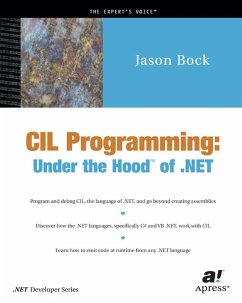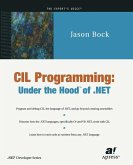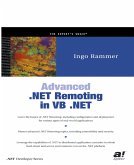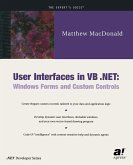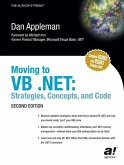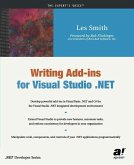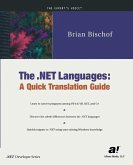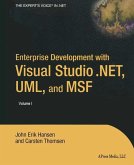Most .NET developers will use a high-level language, such as C# or VB .NET, to develop their systems. However, the core language of .NET is the Common Intermediate Language, or CIL. This language is the language of .NET-whatever is allowed by the .NET specifications can be done in CIL, and it can do much that C# and VB .NET cannot. Understanding how the CIL works will give .NET developers a deep, language-independent insight into the core parts of .NET. Furthermore, such knowledge is essential for creating dynamic types, a powerful part of the .NET Framework. In this book, Bock covers the essentials of programming the CIL. First, he discusses the basics of what .NET: assemblies are, how manifests fit into the picture, and much more. Bock then shows how to create assemblies in .NET-this will cover the ilasm directives and CIL opcodes, and how these are used to define assemblies, classes, field, methods, and method definitions. Bock also covers how C# and VB .NET and other non-MS languages emit CIL and how they differ. Finally, Bock shows how one can create dynamic assemblies at runtime via the Emitter classes.
The Common Intermediate Language (CIL) is the core language of .NET. Although .NET developers often use a high-level language (such as C# or VB .NET) to develop their systems, they can use CIL to do anything allowed by.NET specificationswhich is not the case for C# and VB .NET. Understanding how CIL works will provide you with a deep, language-independent insight into the core parts of .NET. This knowledge is essential for creating dynamic types, a powerful part of the .NET Framework.
In CIL Programming: Under the Hood of .NET, Jason Bock offers an in-depth tutorial on programming in CIL. First, Bock discusses the basics of .NET assemblies and manifests. He then shows how to create assemblies in .NETincluding the ilasm directives and CIL opcodes, and how these are used to define assemblies, classes, field, methods, and method definitions. Bock also covers the ways in which C#, VB .NET, and other non-Microsoft languages emit CIL, and how they differ. Finally, he revealshow developers can create dynamic assemblies at runtime via the Emitter classes.
After reading this guide, you will gain a better understanding of CIL and how to program directly into it. CIL Programming: Under the Hood of .NET is a must-have on every .NET developer's desk!
Hinweis: Dieser Artikel kann nur an eine deutsche Lieferadresse ausgeliefert werden.
The Common Intermediate Language (CIL) is the core language of .NET. Although .NET developers often use a high-level language (such as C# or VB .NET) to develop their systems, they can use CIL to do anything allowed by.NET specificationswhich is not the case for C# and VB .NET. Understanding how CIL works will provide you with a deep, language-independent insight into the core parts of .NET. This knowledge is essential for creating dynamic types, a powerful part of the .NET Framework.
In CIL Programming: Under the Hood of .NET, Jason Bock offers an in-depth tutorial on programming in CIL. First, Bock discusses the basics of .NET assemblies and manifests. He then shows how to create assemblies in .NETincluding the ilasm directives and CIL opcodes, and how these are used to define assemblies, classes, field, methods, and method definitions. Bock also covers the ways in which C#, VB .NET, and other non-Microsoft languages emit CIL, and how they differ. Finally, he revealshow developers can create dynamic assemblies at runtime via the Emitter classes.
After reading this guide, you will gain a better understanding of CIL and how to program directly into it. CIL Programming: Under the Hood of .NET is a must-have on every .NET developer's desk!
Hinweis: Dieser Artikel kann nur an eine deutsche Lieferadresse ausgeliefert werden.

